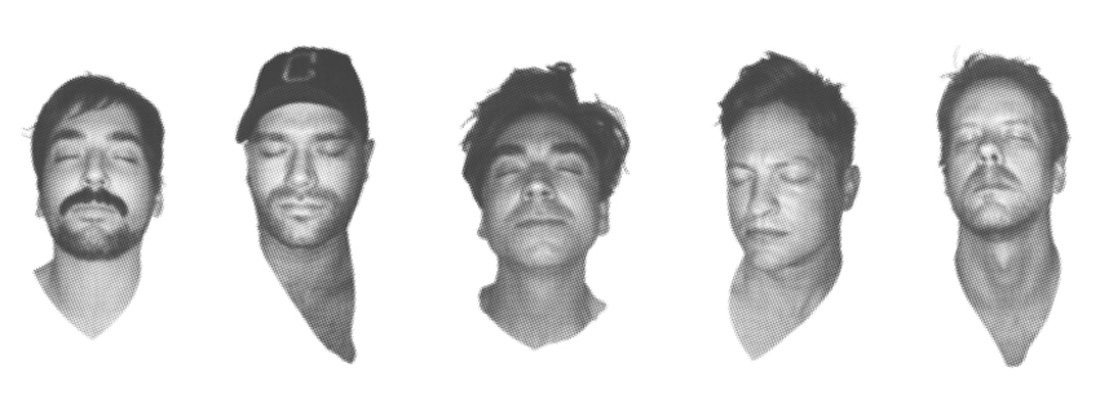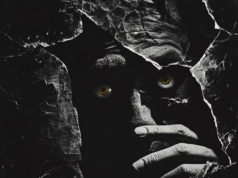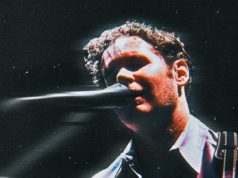Calhoun has always been a little, well, different. When Tim Locke launched what was at the time his solo project, lo, these 10-plus years ago, hard-charging Americana was the most popular indie genre onstage and on the airwaves. So the Fort Worth singer-songwriter, a lifelong fan of smart and genuine music, put his full mastery of the style on display –– “Many Happy Regrets” (a.k.a. “That Coffee and Cigarettes Song”) and “Boom Cha” are two of the best songs ever to come out of Texas.
But as intelligent, whiskey-soaked guitar rock with country inflections was zigging hard, Locke, of course, started zagging. With Calhoun’s eponymous second album, he may have invented an entirely new genre: “crisco,” a mix, Locke said, of country and disco. Though still loaded with Locke’s often wry, always penetrating lyrics about heartbreak, darkness, and frustration — and manifestly lacking any real C&W — Calhoun featured a couple of tracks that wouldn’t have seemed out of place in a swanky nightclub: lots of glammed-up synth riffs and atmospherics, swishing beats, and pumping basslines.
Calhoun came out in 2006, not long after Daft Punk, Hot Chip, and just about every other neo-disco outfit on the planet began clogging the virtual pages of Pitchfork and the airwaves. How did the album do, to apply the sophisticated industry term? Who knows. Measuring local albums in terms of sales is like evaluating writing based on font type –– it’s beside the point. What we do know is that fans were still turning up to Calhoun shows and critical reception was positive and, we should note, damn near Updikean in its depth, insight, and pithiness. (In other words, the Weekly was the only paper to write about the album.)
Over the years, Calhoun became less of a Locke vehicle and more of a band band, with the additions of co-songwriter/multi-instrumentalist Jordan Roberts, bassist/backing vocalist Danny Balis, drummer Josh Hoover, and keyboardist/backing vocalist Toby Pipes, who, with brother Todd Pipes, co-produced Calhoun at Bass Propulsion Laboratories, the now-shuttered Dallas studio the brothers co-owned for over a decade. On both the 2008 album Falter.Waver.Cultivate and the 2011 long-player Heavy Sugar, the “crisco” was still there. It just wasn’t as front-and-center as before.
But now the “crisco” is back. Wholeheartedly.
Last week, Locke and company released their fifth studio work, and while the EP Paperweights is not nearly as danceable as Calhoun, the new platter is undeniably thumping and flashy. Now that KXT, as pristine a tastemaker as there is, is spinning all manner of neo-disco, Paperweights seems prescient. Not that Locke really cares all that much about the sound du jour –– he and Roberts, who, Locke said, wrote almost all of the music, just happened to be listening to some thumping, flashy stuff while assembling Paperweights, including Robyn’s Body Talk and LCD Soundsystem’s This Is Happening.
“We just wanted to do something different,” Locke said. “Americana has gone in a direction I wasn’t really interested in anymore, kind of the hootenanny thing. … We always talked about doing something different, and then when [Pipes] started playing with us, it was very natural.”
Calhoun, oddly enough, didn’t have any bearing on the creation of Paperweights. “I hate listening to old records,” Locke said. “It’s painful, especially for that one. It was a really painful time in my life. I just can’t listen to anything I’ve done without totally imagining what was going on in my life then.”
Recorded with producer Will Hunt at his Spaceway Studios downtown, Paperweights revels in Locke and Roberts’ penchant for driving, full-bodied sonics: mechanized beats that bristle with urgency; synths and guitars that percolate, rattle, and ring; everything freakishly tight and crisp. The six-song EP opens with “Fatal Flaws” and a quirky fakeout of sorts: Rapidly blinking synth notes, some machine-gun drums, and chugging muted guitar thunder by before abruptly dropping out with the requisite zing of six pretty strings, leaving just the basic beat and Locke’s high, strong, sweet voice: “I’ll swear to love you ’til the end of time / Yes, you’ll always be forever mine.” Ah, terra firma: There’s the Calhoun we all know and love. The lyrics quickly pile up, Locke’s voice coming at you from all directions at once, forming a call and response between him and two echoing beats, nails being pounded by metal hammers in the distance: “But you were walking in a cage,” clack clack, “Your life has been dated,” clack clack, “It’s marked / It’s light,” clack clack, “It’s dark / And it’s over at the start.” The interplay is devilish and still catchy as all hell, still distinctly Calhoun-ish.
Paperweights is easily Calhoun’s most lighthearted record. And though you wouldn’t know it from the lyrics quoted above, “Fatal Flaws” is actually a billet-doux to Locke’s 3-year-old son Henry. (The song ends with “Like a leaf drowning in churning seas / They told me you’re mine now / Would I stand like a tree or a man that still does not know how? / I can’t leave you here alone / I will never let you go again.”) The song was birthed by, of all things, Twilight. About a year ago, Locke and Roberts were sent the plot points for the last movie in the vampires-and-werewolves franchise — filmmakers were in pursuit of a Calhoun song to add to the soundtrack. “Obviously, this seemed fairly hilarious,” Locke said. “So I was, like, I have a kid now, and he’s a scary hybrid, and I can already see he has some of my character flaws, so this song will be like an apology/declaration of intent to him.” (Note: Calhoun left the bloodsuckers and hairy beasties high and dry.)
Gone from Paperweights is some of the gentlemanly rage that typified Locke’s previous lyrical output, replaced by peace and levity in the face of all the crap that life throws at us every day. (Literally. Part of the chorus to the delicate ballad “Don’t Look Strange” is “God, he sent the birds to shit on my face.”) Positivity radiates throughout the album. The title track honks and grinds with locomotive force, a pulsating and upbeat but decidedly non-danceable gallop. (“Gallop” was the tune’s working title, natch.) “Song on Songs” erupts from a rumbling, angry guitar into a glittering amble whose chorus finds Locke achieving an immaculate falsetto. “Reap/Sow,” which is getting some KXT airplay, conjures up squishy, heavily digitized 8-bit ditties and basically amounts to a sequence of three meaty choruses stacked atop one another. “I’ll receive what I see when my lesson’s learned,” Locke sings, cramming all the words together. After allowing space for a brightly flickering little guitar figure, he continues, “I’ll receive what I see when my seed is sown / It’s enough.”
The point all along, Locke said, was to put out an EP instead of an album. “Unless something dramatically changes about the music business, it’s better to keep people’s attention by giving them five or six songs every eight to 10 months” instead of an album once every two years or so, he said.
Remaining relevant, however, is not the end game, Locke said. Making good music with his best friends is. “You could do your album and sit on your ass or tour, but [making EPs] kind of keeps you in battle mode all the time,” he said. “You can’t record five songs and take a couple years off. You’ve got to keep at it, keep thinking about it.”
Calhoun will still perform but won’t tour unless a fantastic offer comes up, Locke said, noting that two members, Roberts and Pipes, no longer live in North Texas and that bassist Balis, a local sports-talk radio personality, can’t just pack up and hit the road at a moment’s notice. “Everyone’s been doing this a long time, and everyone’s toured and done things,” Locke said. “We all have the same expectation level, just to enjoy hanging out together and writing together, and whatever else happens is great.”
Calhoun, drummer Hoover said, is still at the forefront of every member’s mind. “We’re all real into it,” he said. “We’re all keeping it interesting for ourselves.”
Where will Calhoun be in five years?
“Rockin’ the Fort,” Hoover said with a smile.












